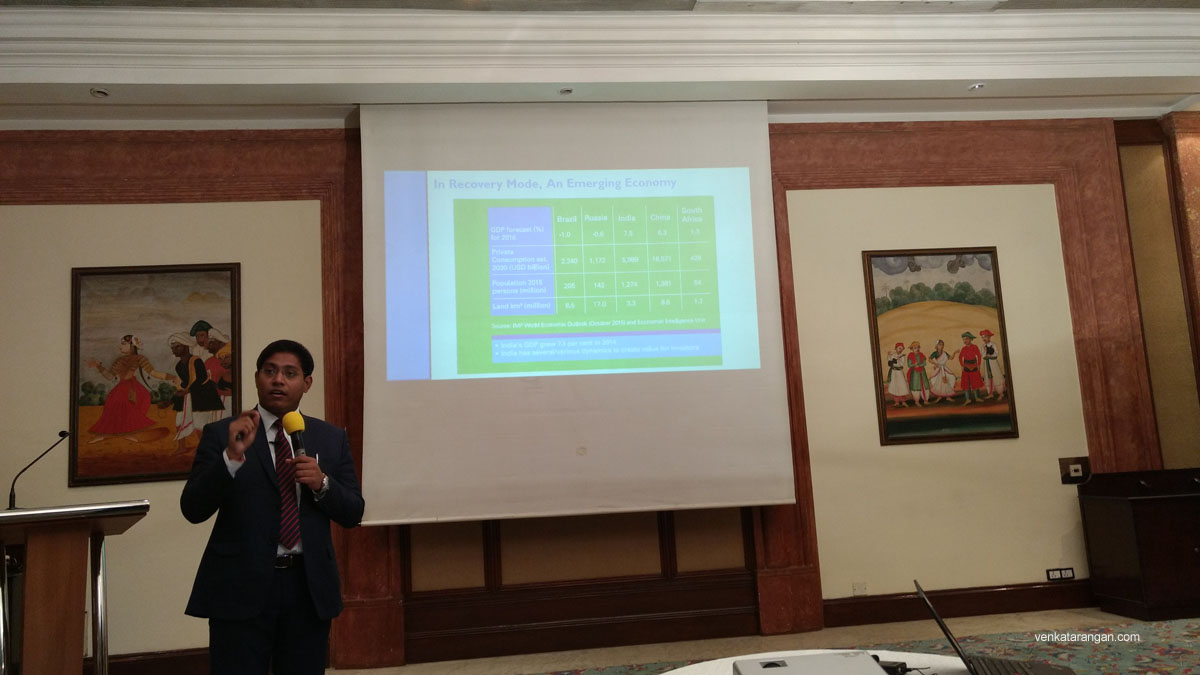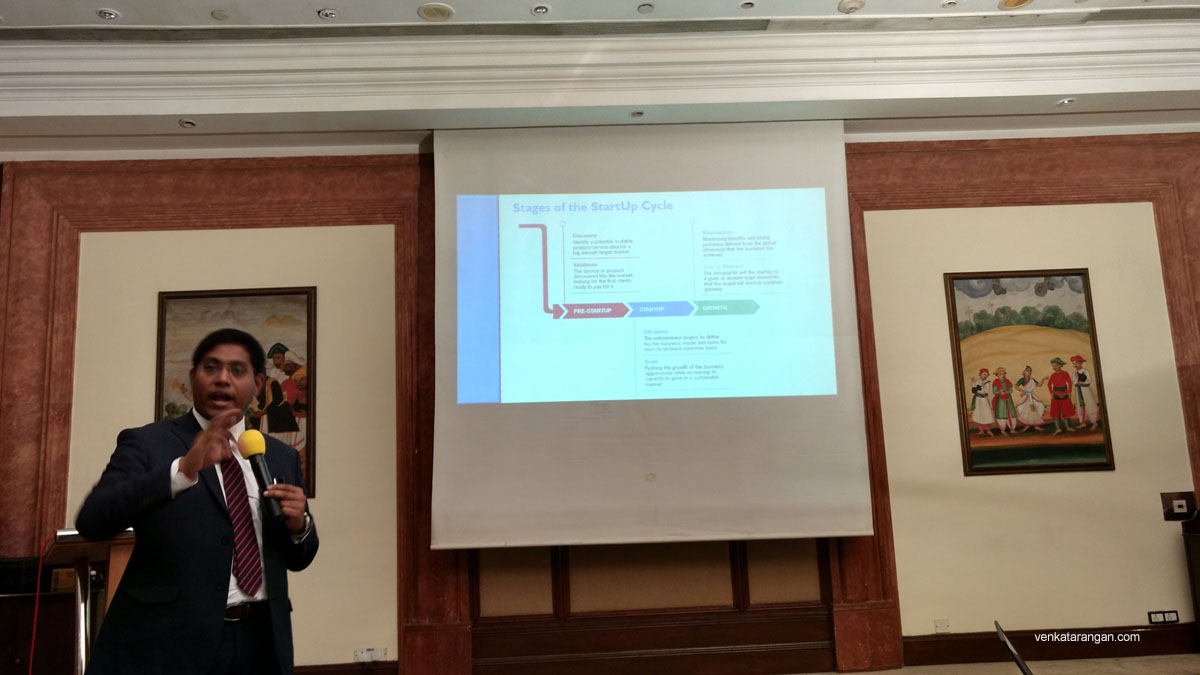Today TiE Chennai had organized a talk “Startup India, Standup India”, covering the program Hon’ble Prime Minister of India Sri Narendra Modi had announced last year. The StartupIndia program is a Government of India’s Policy under Ministry of Commerce & Industry aimed at promoting Startups – young companies that are innovative and can help India grow. Even today in India, most of the employment and growth to economy comes from MSME (Micro Small Medium Enterprises); State and Central governments most often have been a hurdle for these small companies. With this program, Government of India hopes to change it and become a facilitator.
In my experience of being an entrepreneur in India for nearly two decades, Government has a tough job in its hands to convince would-be entrepreneurs. The cost of compliance and approvals needed to enjoy the benefits, outweigh the benefits. Policymakers give benefit in one hand, but India’s bureaucracy takes it back with a vengeance in the other hand. The speaker for the talk, Mr.M.Satya Kumar differed on this common view.
Sathya Kumar is a Chartered Accountant, involved in Policy Specs and advices companies in ASEAN and Taiwan in their collaboration with India. Presently pursuing Phd on Global Transfer Pricing Policy in Emerging Economies and Impact of Tax Havens. He interacts with Noble Peace Prize Laureate Dr. Mohammed Yunus on Social Business/ Education initiatives and with His Holiness Dalai Lama’s peace programs. Satya did a fine job of explaining the “Startup India, Standup India” program and putting forward his case on why entrepreneurs should partner with the Government and take advantage.

Satya started his talk on how India is already a startup fertile ground, but what’s needed is a brand image improvement and simplification of compliance. Through this program Government hopes to create thousands of startup companies which will generate employment for over 35 Million by year 2025. He explained on what’s a startup, the stages a startup goes through and the qualification criteria for the policy which is a work in progress. To qualify a startup should have been registered within last 5 years and be generating less than Rs.25 Crores in turnover. They should submit their innovation ideas for a product or service to an Incubation centre who will certify the program, advice the entrepreneur and push it up to an Industry approval board under DIPP. The benefits from the program include Capital Gains holiday, Networking, Advisory and Minimised interference from Government. Before I buy into this rosy picture, Government has to prove it can walk the talk and the Central Government can take local State Governments along with it – a tough ask.

Satya supported his optimism with examples of startup success stories like Hemalatha Annamalai of Ampere electric scooters writing an email to Ratan Tata and getting funded, Kovai Pazhamudhir Nilayam’s N Natarajan who upscaled what was a roadside purchase pattern to Air Conditioned showrooms, Dr.Velumani’s journey of starting India’s leading diagnostic company “Thyrocare”, 19 year old Yashraj Khaitan starting GramPower, Arunachalam Muruganantham who revolutionised the process of making Sanitary pads for women and many others.
Satya added that under the Startup policy, Government is looking at promoting through free legal help and reduced (10%) income tax for Entrepreneurs registering patents. Through Patents not only the business owner gets benefitted but the country as whole benefits through the receipt of Royalty payments from abroad. An approach countries like Israel has been following for many years now.
Update 22nd June 2016: Government seems to have realized the compliance effort involved in getting enrolled for the program is high and they are proposing to revamp it, as per this news in Economic Times. I agree with the sentiment expressed, Government should stop doling out incentives and focus on scrapping rules and get into coaching/facilitating.


